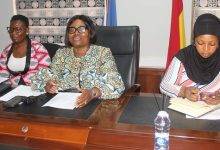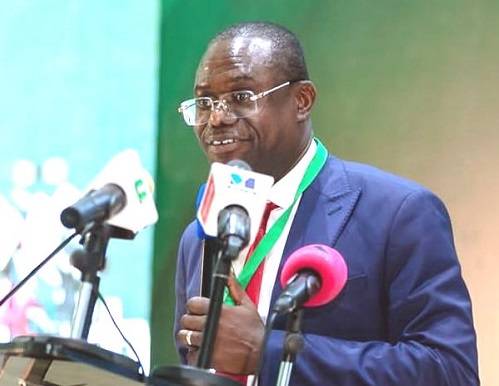
The Chairman of the Jospong Group of Companies, Dr Joseph Siaw Adjepong, has challenged Ghana to learn from the Nigerian experience and become self-sufficient in rice production.
“If Nigeria has done it, we can do it, let’s not reinvent the wheel, let’s copy from them,” he passionately appealed.
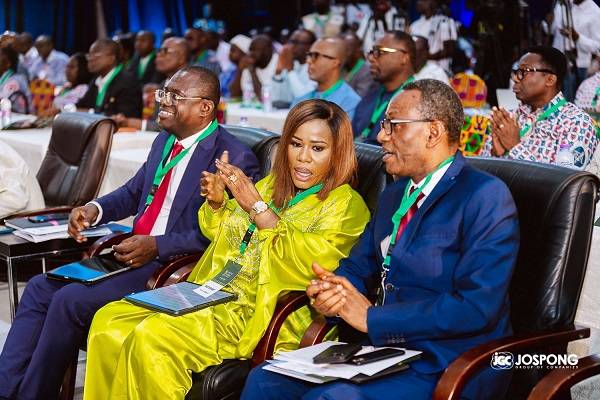
Dr Adjepong was speaking at a two-day Ghana Food Security Conference 2023 themed “Enhancing food security: The role of Ghanaian scientists” at Gomoa Fetteh in the Central Region.
Nigeria, after banning the importation of rice, has made remarkable progress in rice production during the previous decade, surpassing Egypt with yearly production of 5.8 million tonnes.
In 2019, rice accounted for more than 14 per cent of the crops grown by Nigerian households.
“Nigeria is gradually becoming a rice growing super power,” he noted.
Dr Adjepong however, added that most commodities including rice, maize, soya and tomatoes were facing supply shortages in Ghana.
He, therefore, predicted that with the advent of the Jospong Group Rice Project, the importation of rice into the country would be minimised if not stop completely.
“Where we (JG) see a problem we confront it and solve it and this project that we have began, we predict that the rice importation must stop,” he vowed.
He encouraged the stakeholders particularly the rice farmers and scientists not to despair that there were no adequate policies to support the initiative but rather be hopeful that when “fruits begin to yield” policies would change to favour them.
“Whether policy is supporting or not, never be discouraged, let us do our part and when we begin to yield fruits, policies will change to favour us,” he assured.
Quoting former President Barack Obama, he further challenged the government to choose hope over the fear that if it bans the importation of rice, Ghanaians will go hungry but rather be hopeful that the Ghanaian farmer will be challenged and empowered to produce quality rice for the country.
The CEO of the Asian African Consortium (AAC), Mrs Adelaide Siaw Adjepong, who is leading the Jospong Group Rice Project noted that science, research and development have traditionally been the drivers of innovation and productivity and are central to everything done in the world.
According to her, if immediate measures to enhance food production were not taken, the cost of Africa’s yearly food import might rise from $50 billion to US$110 billion by 2030.
“When there is a food crisis, the poor suffer the most since they are unable to obtain food due to price hikes” she noted.
On his part, the Director General of the Council for Scientific and Industrial Research (CSIR), Prof. Paul Bosu, was hopeful that the two-day conference would chart a course towards realising Ghana’s goal of achieving food security and become self-sufficient in rice production.
“We in Ghana have all that we need to become food secure,” he stressed.
He reiterated that the CSIR and the AAC recently signed a MoU to work together towards the vision of helping Ghana to become food secure.
The General Secretary of the Church of Pentecost, Apostle Alexander Nana Yaw Kumi-Labi, who spoke on behalf of the Chairman of the Church of Pentecost, noted that, this initiative has come at the right time to help Ghana achieve the Sustainable Development Goal Two: “End hunger, achieve food security and improved nutrition and promote sustainable agriculture”.
BY TIMES REPORTER


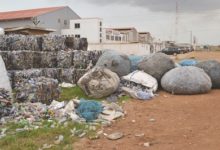
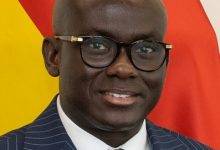
![Dr Faustina Frempong-Ainguah deputy government Statistician [second from right] with the staff of ATU and others photo Lizzy Okai](https://www.ghanaiantimes.com.gh/wp-content/uploads/2024/04/WESTERN-NORTHERN-Dr-Faustina-Frempong-Ainguah-deputy-government-Statistician-second-from-right-with-the-staff-of-ATU-and-others-photo-Lizzy-Okai-220x150.jpg)


